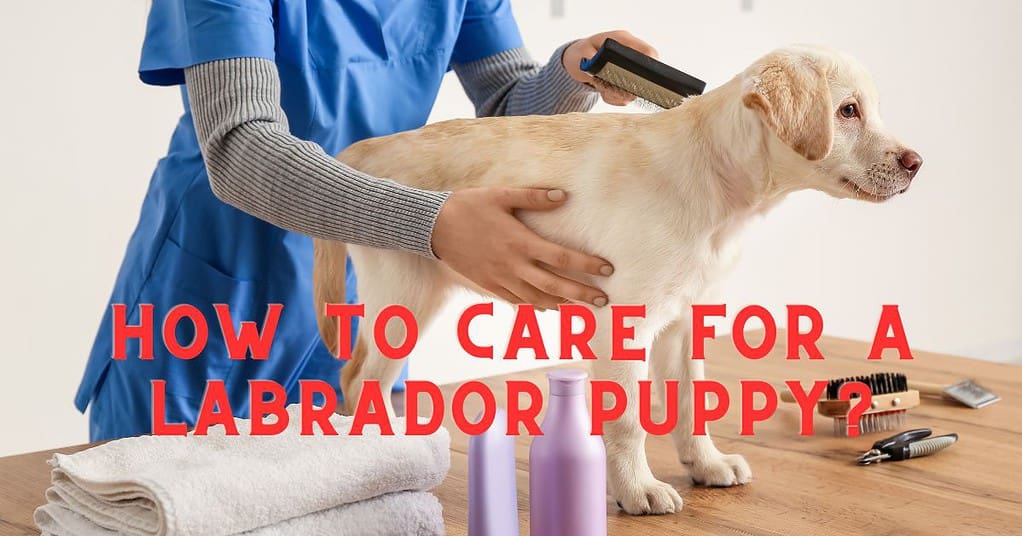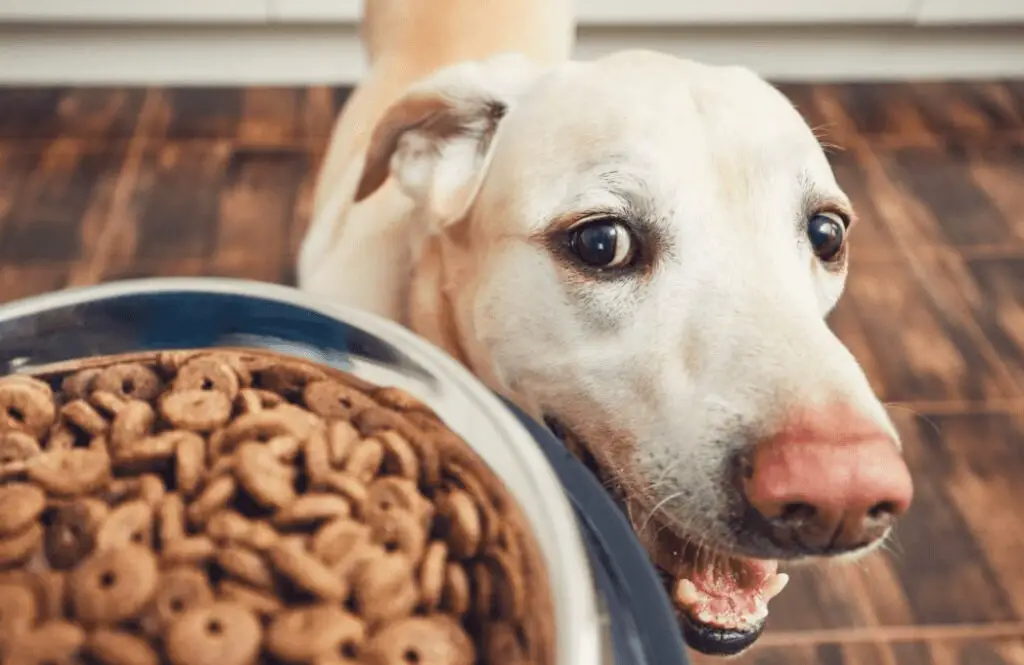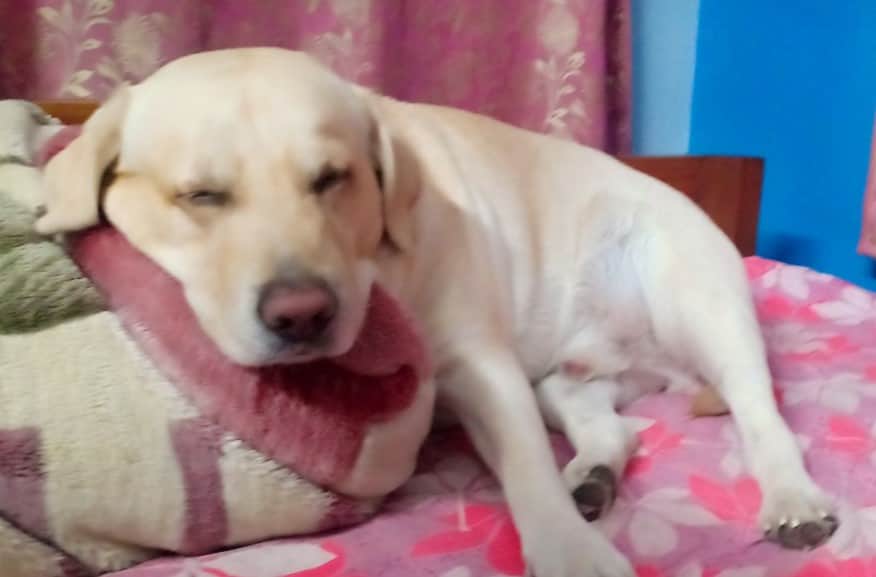Embarking on an enchanting journey of puppy parenthood? Establishing a well-structured and nurturing puppy routine for your dog is vital. An average puppy at 10 weeks of age requires a schedule with regular meals, sleep, and potty breaks.
Pet parents need everything from sleeping and feeding to playtime and socialization for their puppy’s well-rounded development. Each pup is unique, and the schedule can be adjusted to fit your puppy’s needs. Your pup’s journey to becoming a healthy dog starts here!
10-Week-Old Puppy Schedule
A 10-week-old puppy schedule includes sleep patterns, behavior, food and water intake, socialization, appearance, and health care.
Morning
| Time | Activity | Notes |
|---|---|---|
| 6:00 AM | Wake up puppy and take him/her outside for a potty break. | Puppies need to go potty first thing in the morning. |
| 6:15 AM | Feed puppy breakfast. | Puppies should eat 3-4 times per day. |
| 6:30 AM | Play with puppy for 10-15 minutes. | Puppies need plenty of exercise and stimulation. |
| 7:00 AM | Take puppy for a short walk or play fetch in the yard. | This will help to tire out your puppy and prevent accidents. |
| 7:30 AM | Naptime for puppy (2-3 hours). | Puppies need plenty of sleep to grow and develop. |
Afternoon
| Time | Activity | Notes |
|---|---|---|
| 10:00 AM | Wake puppy up and take him/her outside for a potty break. | Puppies need to go potty every 2-3 hours. |
| 10:15 AM | Play with puppy for 15-20 minutes. | Puppies need plenty of exercise and stimulation. |
| 10:30 AM | Feed puppy lunch. | Puppies should eat 3-4 times per day. |
| 11:00 AM | Take puppy for a longer walk or play in the park. | This will help to tire out your puppy and prevent accidents. |
| 12:00 PM | Naptime for puppy (2-3 hours). | Puppies need plenty of sleep to grow and develop. |
Evening/Night
| Time | Activity | Notes |
|---|---|---|
| 2:00 PM | Wake puppy up and take him/her outside for a potty break. | Puppies need to go potty every 2-3 hours. |
| 2:15 PM | Play with puppy for 20-30 minutes. | Puppies need plenty of exercise and stimulation. |
| 2:45 PM | Train puppy with basic commands (sit, stay, come). | Puppies need to learn basic commands in order to be well-behaved. |
| 3:15 PM | Take puppy for a short walk or play fetch in the yard. | This will help to tire out your puppy and prevent accidents. |
| 3:45 PM | Naptime for puppy (2-3 hours). | Puppies need plenty of sleep to grow and develop. |
| 6:00 PM | Wake puppy up and take him/her outside for a potty break. | Puppies need to go potty every 2-3 hours. |
| 6:15 PM | Feed puppy dinner. | Puppies should eat 3-4 times per day. |
| 6:30 PM | Play with puppy for 30-45 minutes. | Puppies need plenty of exercise and stimulation. |
| 7:15 PM | Take puppy for a final potty break before bed. | Puppies need to go potty before bed to prevent accidents. |
| 7:30 PM | Put puppy in crate for bedtime. | Puppies need plenty of sleep to grow and develop. |
10-Week-Old Puppy Sleep Schedules
A 10-week-old puppy sleep schedule means a lot of sleep – typically around 18 to 20 hours in their daily routines. It is essential for proper growth and puppy development. To establish healthy sleeping habits, incorporate several quiet nap times throughout the day in your puppy’s routine.
Not all puppies at this age can sleep through the night for eight straight hours just yet. Some may need a little longer before they can achieve that milestone.
10-Week-Old Puppy Behavior
10-Week-Old puppy behavior is full of energy and curiosity. They exhibit various behaviors like playful nipping as they sharpen their biting skills. They explore objects around them and show signs of fear or anxiety toward unfamiliar people, animals, or situations.
This phase is pivotal in shaping your puppy’s social behavior. Often at this age, changes in the environment significantly influence a puppy’s demeanor and actions. Puppies will start to gain an understanding of their surroundings from interaction with littermates and humans alike.
New puppy owners must be patient but consistent while handling behavioral issues like excessive chewing or barking.
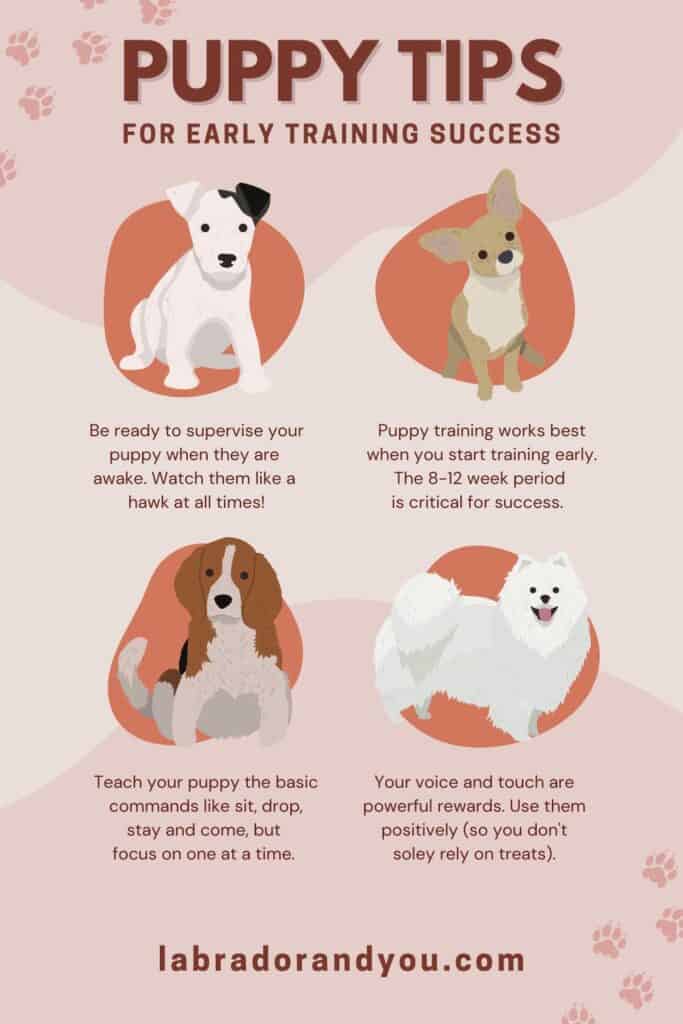
How Much Should A 10-Week-Old Puppy Eat?
A 10-week-old puppy’s diet warrants extra attention. Feeding must occur three to four times daily, including morning, late morning, early afternoon, and evening meals.
For large breed puppies around this age, unmoistened dry food is the most suitable option. Small breeds can comfortably transition to unmoistened dry about two or three weeks later.
The specific quantity of food required for your furry friend primarily depends on their weight and size. It can be determined with the help of a feeding chart.
Every puppy has unique dietary needs and developmental stages. Depending on individual needs, modifications in their feeding schedule or portion sizes might be necessary.
How Much Water Does A 10-Week-Old Puppy Need To Drink?
A 10-week-old puppy must drink an average of 1/2 to 1 ounce of water per pound of body weight daily. If your puppy weighs around 7 pounds, it should consume about 7 ounces of water daily.
Always provide your puppy with fresh and clean water in a water bowl to keep them hydrated and healthy. Labrador puppies typically require 1-2 cups of fresh water per day.

10-Week-Old Puppy Socialization
Socializing is crucial for 10-week-old puppy development. Expose them to different people, public spaces, sights, and sounds. This will help them become comfortable and confident in various situations as they age.
Take your puppy on walks around the neighborhood as part of 10-week-old puppy socialization. Introduce them to friendly dogs, and let them meet new people (with proper social distancing). Expose them to different sounds like vacuum cleaners or doorbells.
Positive associations during this period of time will shape your pup into a well-rounded and sociable adult dog.
10-Week-Old Puppy Appearance
A 10-Week-Old puppy appearance is undeniably adorable. They have grown and developed since their early weeks of life and are starting to resemble their adult selves. They may still have a fluffy coat that makes them extra huggable.
Their eyes are bright and curious, while their ears may perk up as they explore the world. These little furballs are often small in size but big on cuteness, with playful antics.
10-Week-Old Puppy Health And Care
Taking care of the health and well-being of your 10-week-old puppy health is essential for its overall development. Schedule a vet visit for their second round of puppy vaccinations to protect them from common diseases.
Regular check-ups will ensure your puppy grows properly and receive the necessary treatments or medications. Your vet recommends a balanced diet that meets their nutritional needs. Paying extra attention to dental care and grooming maintains good hygiene and prevents future problems.
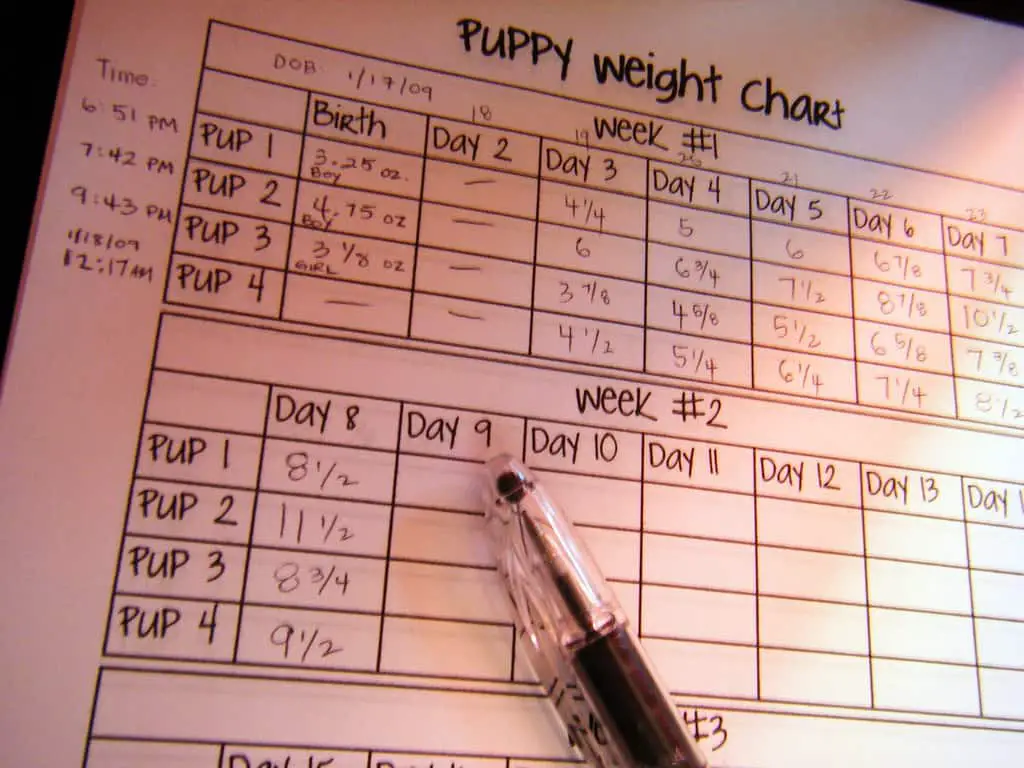
10 Week Old Puppy Drooling
It is normal for 10-week-old puppies to drool, especially if they are teething. Teething can be a painful process for puppies, and drooling is a way for them to relieve some of the discomfort. Other common causes of drooling in puppies include:
- Excitement: Puppies often drool when they are excited, such as when they are playing or getting a treat.
- Hunger: Puppies may drool when they are hungry as a way to produce more saliva and help them to digest their food.
- Illness: Drooling can indicate illness in puppies, such as kidney disease, liver disease, or dental problems.
- Bloat: Bloat is a serious condition in puppies that can be fatal. If your puppy is drooling and has other symptoms of bloat, such as restlessness, vomiting, and abdominal pain, it is important to take them to the vet immediately.
Basic Puppy Training Timeline
At 7-8 weeks old, your puppy is ready for basic training. Start with simple commands and positive associations. By 10-12 weeks, your puppy can learn more advanced skills like leash walking and stay commands. Keep reading to discover the complete training timeline for your furry friend!
7-8 Weeks Old
At 7-8 weeks old, puppies are ready to start their basic puppy training schedule. This is the perfect time frame to introduce them to simple commands like sit, stay, and come. They are also at an age where they can begin learning good behaviors and proper socialization outings.
Provide a safe space for your puppy and establish a consistent routine that includes potty breaks and meal times. Remember, consistency is key when training your puppy at this young age.
8-10 Weeks Old
An 8-week-old puppy is still young and learning about the world around them. This is a crucial time for socialization. They are more open to new experiences and interactions with other dogs and people.
Positively expose your 8-week-old puppy to different environments and situations during this stage. Puppy parents can introduce basic commands like sit and stay using positive reinforcement techniques like treats or praise.
Your puppy will likely have received their first-year puppy shots. A pet sitter must follow up with any necessary booster shots your veterinarian recommends is important. Puppies also need plenty of rest time throughout the day to support their growing bodies and minds.
Regarding diet, an 8 to 10-week old puppy typically requires several small meals throughout the day instead of one large meal. Consult with your vet regarding the appropriate amount and type of food for your specific breed or puppy size.
10-12 Weeks Old
During the 10-12 week period, your puppy is still in the early stages of training and puppy development. Continue reinforcing good behaviors and introducing basic obedience commands.
Use positive reinforcement techniques to teach your puppy important commands like sit, stay, and come. Socialization should also be a priority during this stage. It will help your puppy become well-adjusted and confident around other people and animals.
12-16 Weeks Old
At 12-16 weeks old, it’s time to start a basic puppy training schedule. It is crucial for teaching good behavior and establishing a foundation for a future training program. Take your puppy outside in the morning, after meals, and after playtime and naps for potty breaks.
This helps them learn proper bathroom habits early on. The 12-16 week timeframe is also a growth stage for puppies. Focus on building their skills and confidence through positive reinforcement techniques.
What Should You Start Doing At 10 Weeks?
Start getting your 10-week-old companion into a puppy routine. Create a toilet training puppy schedule, use puzzle toys, and have plenty of chew toys available.
Create A Toilet Training Schedule
Establishing a toilet puppy training schedule helps your 10-week-old puppy learn where and when to go for puppy potties. Here are some tips for creating an effective day schedule:
- Take your puppy outside for a bathroom break when they wake up.
- Schedule regular potty and toilet breaks, ideally every 2-3 hours.
- Take your puppy outside after meals, as they often need to go shortly after eating.
- After playtime or vigorous activity, bring your puppy outside to eliminate.
- Pay extra attention to signs your puppy needs to go, like sniffing around or circling.
- Always take your puppy outside before bedtime and immediately upon waking up from naps.
Crate Training
Crate training can be a great way to housebreak your puppy, teach them to be calm and independent, and make travel easier. Here are some tips for crate training a 10-week-old puppy:
Choose the right crate.
The crate should be big enough for your puppy to stand up, turn around, and lie comfortably. You can get a wire crate or a plastic crate. Wire crates are more durable, but plastic crates are easier to clean.
Place the crate in a quiet area of your home.
You want your puppy to associate their crate with a calm, relaxing environment. Avoid placing the crate in a high-traffic area or near a noisy appliance.
Line the crate with a soft blanket or bed.
This will make your puppy more comfortable in their crate. You can also put a few toys in the crate to keep them occupied.
Introduce the crate to your puppy gradually.
Start by putting the crate in the room with your puppy and letting them sniff it. Then, you can put some treats inside the crate and let them go in independently. Once they are comfortable going in and out of the crate, you can close the door for short periods.
Never force your puppy into the crate.
They will associate the crate with negative experiences if they are uncomfortable. Instead, make the crate a positive place by giving them treats and praise when they go in alone.
Start crate training at night.
This is when puppies are most likely to have accidents, so it is a good time to start getting them used to sleeping in the crate. Start by putting your puppy in the crate for a few hours at night and gradually increase the time as they get more comfortable.
Use Puzzle Toys
Puzzle toys are a fantastic way to keep your 10-week-old puppy engaged and mentally stimulated. These toys allow your puppy to exercise problem-solving skills and keep their brain active.
By figuring out simple puzzles, puppies can be rewarded with treats, which adds an element of fun to the activity.
These toys prevent boredom and destructive behavioral issues by keeping your puppy occupied constructively. Including puzzle toys in their schedule ensures they have a healthy outlet for their puppy energy and curiosity.
Have Lots Of Chew Toys Available For Your Puppy
Puppy parents must have plenty of chew toys available for their little pup. Between 12 and 24 weeks, puppies experience teething discomfort, and having appropriate toys alleviate this.
Look for durable options like Nylabone toys or nylon bones that can withstand weeks of chewing. Rubber toys are also a good choice for extended chewing sessions. Choose toys that don’t pose a choking hazard or risk of ingestion.
Having a variety of chew toys on hand will keep your puppy entertained. It will satisfy their natural urge to chew without damaging household items or getting into potential trouble.
Decide On Your Own House Rules
Establishing and enforcing house rules is crucial for raising a well-behaved puppy. As your 10-week-old pup enters a new phase, now is the perfect time to decide on your house rules.
These rules can include where your puppy can go in the house, what furniture they are allowed on, and any off-limits areas. Consistency is key here, as puppies thrive on routine and clear boundaries.
Setting these guidelines early on will help your puppy understand acceptable behaviors and create a harmonious living environment. Reinforce these house rules consistently so they become ingrained in your pup’s behavior early on.
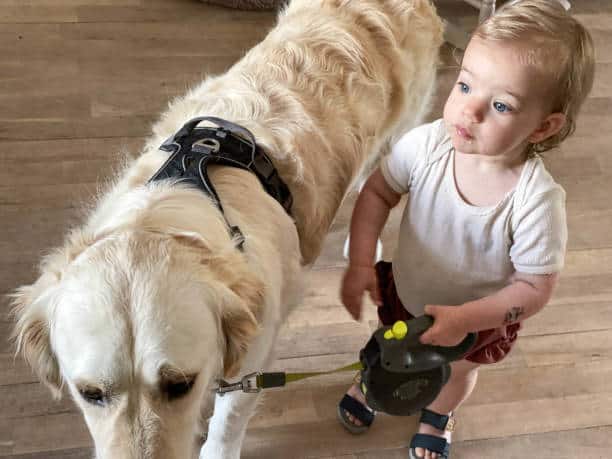
Research Puppy Socialization Classes
Attending puppy socialization classes or puppy school is beneficial for your 10-week-old furry friend. These puppy training classes provide a controlled and supervised environment where puppies can interact with other dogs and people.
This interaction develops crucial social skills and teaches appropriate behavior. Research shows that well-socialized puppies are less likely to exhibit behavioral problems like aggression and fearfulness.
Food and Dietary Needs
Eight to ten-week-old puppies have specific food and dietary needs crucial for their growth and development. During this stage, puppies should be fed three to four times daily with dog food formulated for growth.
This food contains higher concentrations of essential nutrients like protein, fat, and calcium that support their growing bodies. The food to feed a puppy should be based on its age and weight, using a feeding chart as a guide. Do not overfeed or underfeed them, which can lead to health issues.
Large breed puppies should start eating unmoistened dry food by 10 weeks, while small dogs at around 12-13 weeks.To ensure proper nutrition for your puppy, consult your veterinarian. They can provide personalized advice based on your puppy’s specific needs.
10-Week Schedule: Second Vaccinations List!
The second puppy vaccination is typically administered at 10-12 weeks of age. These puppy vaccinations are for protecting them against common diseases and viruses. Here is a list of the vaccines that are usually included in the second vaccination:
FAQ
How Long Should You Train a 10-Week-Old Puppy?
Training sessions for a 10-week-old puppy should be short, around 5-10 minutes long. This is because their attention span and energy levels still develop at this age. Keep training sessions engaging and fun to hold their interest.
Consistency and patience are key when training a young puppy. It’s better to have multiple shorter sessions throughout the day rather than one long session. For instance, 5-10 minute training sessions several times daily.
How Often Should A 10-Week Old Puppy Play?
A 10-week-old puppy should play multiple times daily to promote physical and mental exercise. Playtime helps them burn off energy, strengthen their muscles, and socialize with humans and other animals.
Aim for several short play sessions throughout the day, each lasting for 5-10 minutes or 15-20 minutes. These sessions can include interactive games or less strenuous exercise like fetch or tug-of-war and supervised exploration of safe space.
Do 10-Week Old Puppies Need Milk?
At 10 weeks old, puppies no longer need milk as their main source of nutrition. By this age, they should have been weaned off their mother’s milk and transitioned to solid puppy food.
While milk is essential for newborn puppies, like for a human baby, it becomes less crucial as they age. As puppies grow, they require more calories, fat, protein, and essential nutrients per pound than adult dogs.
Feed them a balanced diet specifically formulated for their nutritional needs at this stage of life. Transitioning from milk to puppy food ensures your 10-week-old pup gets all the nourishment they need for healthy growth.
How Do I Teach My 10 Week Old Puppy Its Name?
Teaching your 10-week-old puppy their name is a part of their training. The key is associating their name with something positive, like treats or praise. Start by saying their name in a happy and enthusiastic tone. Then, immediately give them a reward when they respond or look towards you.
Practice this several times a day from different distances. Use the puppy’s name consistently and avoid using it in negative situations. Your 10-week-old puppy will learn their name with regular practice within a few days!
Are Puppies Toilet Trained At 10 Weeks?
Most puppies are not fully toilet trained until they are 4 to 6 months of age. Potty training can take several weeks. Puppies typically take about 4-8 weeks to catch on to the potty training progress.
Teaching a puppy to use a potty bell should not be done while they are still in the process of being potty trained. Following a specific puppy potty training schedule can speed up the training process and create consistency.
How Many Times A Day Does a 10-Week-Old Puppy Eat?
A 10-week-old puppy should be fed three to four times a day. Establish a regular feeding schedule for your puppy at this age. Feeding them smaller meals throughout the day maintains their energy levels and supports healthy growth.
Puppies have small stomachs. Divide their daily food into multiple meals so they can digest it properly without overeating or experiencing discomfort. Follow the recommended feeding guidelines based on your puppy’s weight and choose a high-quality, age-appropriate dry food.
Should a 10-Week-Old Puppy Be Left Alone?
Leaving a 10-week-old puppy alone for extended periods of time is not recommended. Most experts agree that puppies this young should not be left alone for more than two to three hours at a time.
Their bladder capacity is still developing, so they may need to go outside and have bathroom breaks more frequently. Gradually introduce short periods of alone time. Starting with a few minutes and increasing can help them adjust to being alone. Puppies are still learning at this age and may have accidents if left alone for too long.
Author Profile
- Site Owner And Dog Lover
-
Aritra, the founder of Labradorandyou.com, is a lifelong dog lover whose passion ignited for Labradors for their loyalty and intelligence. With extensive research and personal experiences, Aritra has become a Labrador expert, offering a rich resource on the breed. Labradorandyou.com provides reliable, timely, and evidence-based information, including Labrador-specific product reviews, training techniques, and care tips.
Labradorandyou.com was born out of Aritra's passion and his desire to share his profound knowledge about the breed. The site serves as a comprehensive resource, offering a wealth of up-to-date information for Labrador owners and enthusiasts alike
Also by the author
-
 Lab-TypesNovember 17, 2023Old Dog Seizures: Causes, Symptoms, and Treatment Options
Lab-TypesNovember 17, 2023Old Dog Seizures: Causes, Symptoms, and Treatment Options
-
 Lab-TypesNovember 17, 2023Why Is My Dogs Poop Yellow? 8 Reasons & Solutions
Lab-TypesNovember 17, 2023Why Is My Dogs Poop Yellow? 8 Reasons & Solutions
-
 ReviewsNovember 17, 2023The Only Hill’s Science Diet Review You Need To Read
ReviewsNovember 17, 2023The Only Hill’s Science Diet Review You Need To Read
-
 Lab-TypesNovember 17, 2023How To Adopt An Emotional Support Dog?
Lab-TypesNovember 17, 2023How To Adopt An Emotional Support Dog?
